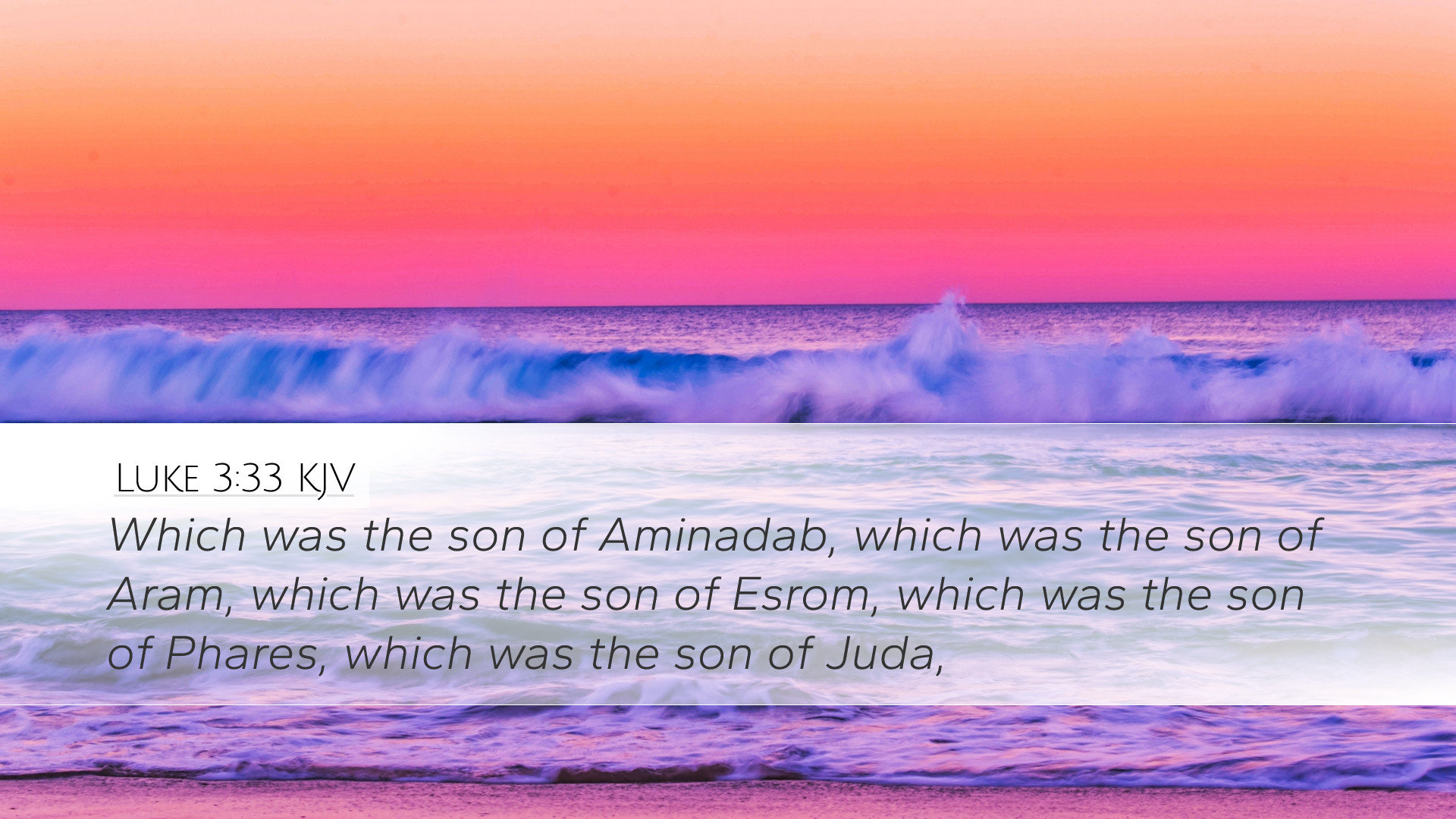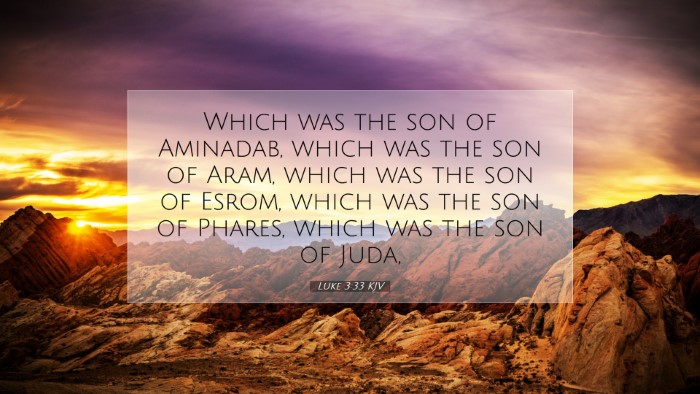Commentary on Luke 3:33
Verse Context: Luke 3:33 states, "the son of Amminadab, the son of Admin, the son of Abijah." This verse is part of the genealogy of Jesus Christ, highlighting His lineage back to David and ultimately to Adam.
Theological Significance
This verse is significant for understanding the fulfillment of Old Testament prophecies concerning the Messiah. It establishes Christ's rightful claim to the throne of David, confirming His identity as the awaited Savior.
Genealogy and the Assurance of Promises
Matthew Henry notes that the genealogies in the Gospels serve to reassure believers of the faithfulness of God’s promises. The lineage through Amminadab affirms God’s covenant with David, reflecting His covenant faithfulness through generations.
Connection to the Davidic Covenant
Albert Barnes emphasizes the importance of tracing Jesus’ ancestry to David, as it not only fulfills the prophecies concerning the Messiah but reinforces the Davidic covenant. This lineage encourages theologians to recognize God’s sovereign plan through history.
Historical Insights
Adam Clarke provides a historical perspective, noting that the mention of names in genealogies suggests the establishment of a legal and recognized lineage. This aspect is vital for understanding the Jewish context in which Jesus operated.
Importance of Names
- Amminadab: The name means "my people are noble," highlighting the noble heritage of Jesus.
- Admin: His mention implies a continuity of faith and righteousness within the lineage.
- Abijah: This name connects Jesus to the priestly line and signifies the intertwining of royal and priestly roles in Jesus’ ministry.
Spiritual Applications
The genealogy as recorded in Luke serves several spiritual applications for believers today, as outlined by various commentators.
The Inclusivity of Christ's Lineage
Matthew Henry states that the inclusion of various names, some of whom faced significant challenges, demonstrates God's grace. It reminds believers that Christ came for all, regardless of past failures or societal status.
Understanding Our Heritage
Albert Barnes encourages Christians to reflect on their spiritual lineage. Just as Jesus' genealogy included both faithful and flawed individuals, believers should recognize their heritage in Christ while striving to maintain faithfulness.
Continuity of God’s Work
Adam Clarke discusses the importance of continuity in God’s work over generations. The lineage affirms that God is active in history and His plans unfold through humanity, which encourages believers to trust in God's timing.
Conclusion
In summary, Luke 3:33 is much more than a historical fact; it is a rich tapestry of theological, spiritual, and historical significance. It establishes the credentials of Jesus as the Messiah, fulfills prophecy, and encourages believers to see their place in God’s continuing story of redemption.
Final Thoughts
As pastors, students, theologians, and scholars engage with this verse, they are reminded of God’s unwavering faithfulness and the importance of understanding one's roots in faith. The genealogy of Christ embodies the promise and hope that resonates throughout Scripture.


